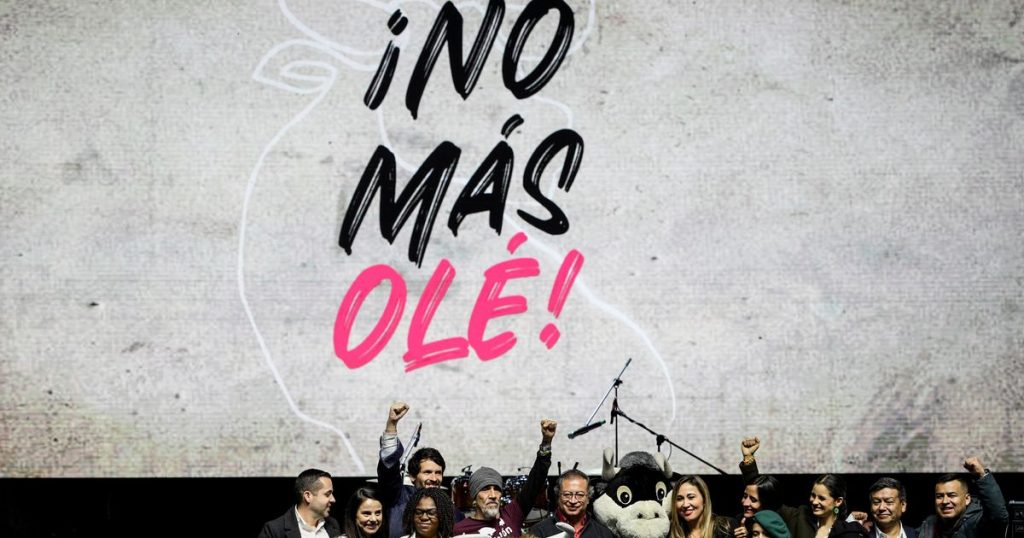Colombian President Gustavo Petro has signed a bill that bans bullfights in the country, joining a small number of nations where the centuries-old tradition is still legal. The legislation, approved by Colombia’s Congress in May, calls for a complete ban on bullfights nationwide by 2027. The bill also mandates the transformation of over a dozen bullrings into cultural and sporting venues. Bullfighting has been a part of Colombian culture since Spanish colonial times, but its popularity has waned in recent years as attitudes towards animal rights have shifted.
The signing of the bill took place in Bogota’s bullring in front of hundreds of animal rights activists. President Petro emphasized the ethical issues surrounding the killing of animals for entertainment, stating that such practices could potentially lead to further harm against humans. However, proponents of bullfighting argue that the ban infringes on the rights of minorities to preserve their cultural heritage and poses a threat to the livelihoods of individuals involved in the industry, such as matadors, event promoters, and ranchers who breed the bulls used in fights. Some groups have vowed to challenge the law in Colombia’s Constitutional Court, highlighting the divisive nature of the issue.
While Colombia has joined the ranks of countries that have banned bullfighting, there are still seven nations that permit the practice, including Spain, France, Portugal, Mexico, Venezuela, Ecuador, and Peru. However, within these countries, there are municipalities and regions that have implemented local bans on bullfighting. President Petro has been a longtime opponent of bullfights, dating back to his tenure as mayor of Bogota when he nullified a contract that allowed bullfighting events in the city’s arena. Animal rights activists in Colombia have been advocating for a ban on bullfighting for over two decades, and their efforts finally paid off with the recent passage of the legislation.
Supporters of bullfighting have launched a social media campaign to rally backing for the tradition, claiming that the bill was passed without the approval of Colombia’s labor ministry. The controversy surrounding the ban reflects the deep-seated emotions and conflicting viewpoints on the issue. Activists like Chucho Merchan, a vegan musician, have hailed the ban as a step towards a more compassionate world, free of cruelty. The passage of the bill represents a significant victory for animal rights advocates in Colombia, who have persevered through setbacks and narrow defeats in their quest to put an end to bullfighting in the country.
As Colombia transitions away from bullfighting, the focus is shifting towards promoting cultural and sporting activities that do not involve the harm or killing of animals. The ban on bullfights represents a broader societal shift towards greater compassion and respect for animal welfare. While there are challenges and opposition from pro-bullfighting groups, the momentum towards ending this controversial tradition is growing. President Petro’s signing of the bill marks a pivotal moment in Colombia’s history, signaling a shift towards a more ethical and humane society. Through continued advocacy and education, animal rights activists hope to create a future where animals are no longer exploited for human entertainment.


